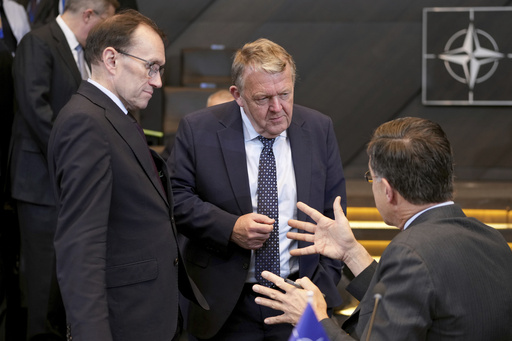
BRUSSELS — NATO Secretary-General Mark Rutte initiated a renewed appeal on Wednesday for European nations to increase their defense budgets, addressing a funding gap that has created distrust among allies, particularly highlighted during Donald Trump’s first term as President of the United States.
The call to action comes in light of the agreements made by NATO leaders a decade ago, following Russia’s annexation of Ukraine’s Crimean Peninsula. At that time, leaders decided to end the reduction of defense spending that had begun after the Cold War and to aim for a military budget equivalent to 2% of their respective GDPs. However, since Russia’s comprehensive attack on Ukraine nearly three years ago, NATO leaders have recognized that this target should serve as a minimum rather than a maximum for defense expenditures. While on average, U.S. allies achieve this target collectively, approximately one-third of member states have yet to reach it independently.
Trump had previously warned that he might not provide defense support to those allies he termed “delinquent.” This stance posed a significant risk to the foundational principle of NATO, where an assault on one member is viewed as an assault on all. His comments disrupted the perception that the U.S. could be relied upon during emergencies.
After a meeting among NATO foreign ministers in Brussels, Rutte emphasized the need for increased deterrence, stating, “2% is not enough if we want to maintain our current levels of defense.” He expressed a desire to keep NATO’s defensive capabilities robust for the next four to five years, indicating that the current level of self-defense must be sustained.
In July, U.S. President Joe Biden and NATO allies agreed on a major transformation of the alliance’s strategy to respond to potential hostilities from Russia, marking a significant shift since the end of the Cold War. The new framework aims to dissuade Russia from targeting any member of the alliance by preparing up to 300,000 troops to be mobilized within 30 days in case of an attack. The plans specify which allies would take action in response to threats extending from the Arctic and Baltic Sea through the Atlantic and onward to the Black Sea.
However, NATO officials acknowledge that to effectively implement this security strategy, a defense expenditure of up to 3% of GDP for certain countries may be necessary. A new spending initiative is anticipated to be announced next year, with potential goals set for member states to address gaps in military resources.
British Foreign Secretary David Lammy pointed out the urgency of the situation, declaring, “The time to act is now.” He specifically noted the dangers posed by Russia in various global conflicts, including those in the Middle East and Africa. Lammy urged all NATO allies to take defense spending seriously.
During his final NATO meeting in Brussels, U.S. Secretary of State Antony Blinken reinforced this sentiment, asserting, “This is a time for every ally to lean in, not lean back.” The U.S. remains the most influential member of the alliance.
“A more robust NATO equates to enhanced abilities to deter aggression, more competent allies prepared for complex challenges, and the stability that allows our citizens the freedom to live fulfilling lives,” Blinken remarked.
In addition to defense budgets, Rutte emphasized the necessity for bolstering Europe’s defense manufacturing sector. He advocated for incentives that encourage companies to increase production and expand their workforces, especially as Western nations provide continued support to Ukraine, which is depleting their stockpiles of arms.
“Our production is insufficient and costly, with delayed deliveries,” Rutte stated. “We cannot accept a situation where we are merely paying higher prices for the same products while shareholders benefit disproportionately.”
He urged member nations to collaborate closely to enhance production rates and ensure reasonable pricing. Rutte mentioned that some countries are currently seeking South Korean military equipment, highlighting a gap in local defense manufacturing capabilities.
